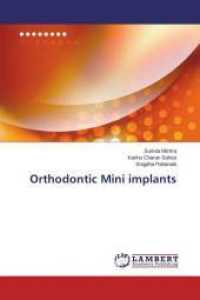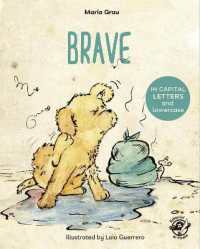Full Description
An Introduction to Critical Autoethnography and Education: The Vulnerable Researcher examines the practice of critical autoethnography, which combines critical pedagogy, autoethnography, and often, critical ethnography, as a research methodology for conducting research in vulnerable communities without establishing hierarchical systems. Researchers who work collaboratively with participants in these communities can provide a means for often-unheard voices to reach wider audiences.
Researchers function as collaborators/participants in the research, asking themselves the same questions they ask the other participants in the research. This methodology requires reflection and introspection, as researchers examine the Self and the complexities of their cultural perspectives, whether visible or invisible, hidden beneath layers of socially constructed beliefs and behaviors. This interrogation and problematization of words and actions surpasses chronological and supposedly objective recounting of autobiography, leading to a deep understanding of the sociocultural, socioeconomic, political, and historical beliefs that created their ways of understanding and navigating the world. Traditional research situates researchers as experts. Pushing against existing norms, critical autoethnography negates hierarchical thinking, believing all collaborators co-construct equally valuable knowledge and meaning.
Accessible to diverse audiences, this book would be appropriate in graduate qualitative methods or foundations courses, at introductory or advanced levels. It would also be a good addition to any undergraduate courses preparing students to conduct research in vulnerable communities.








